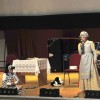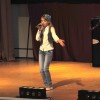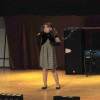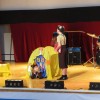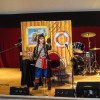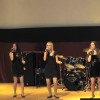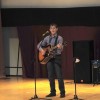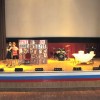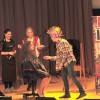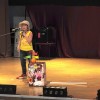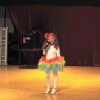News
Результаты конкурса Talent Show – 2019
Программа XXIII ежегодного краевого смотра-конкурса на английском языке для школьников Приморского края Talent Show – 2019
Talent Show 2019
Внимание! Открыт сбор заявок на участие в XXIII ежегодном смотре-конкурсе на английском языке для школьников Приморского края Talent Show 2019.
Заявки принимаются до 20.03.2019 по электронной почте talentshow@yandex.ru
FEELTA 2018: “Teaching English in the Era of Globalization: Bridging Gaps, Meeting Challenges”
FEELTA 2018: “Teaching English in the Era of Globalization: Bridging Gaps, Meeting Challenges”
Please, visit Conference website
Поздравляем победителей и призёров XXII смотра-конкурса
Поздравляем победителей и призёров XXII смотра-конкурса на английском языке Talent Show 2018 и приглашаем принять участие в гала-концерте Finalist Show, который состоится 28.04.2018 в Синем зале ДВФУ с 13.30 до 15.30. Просим подтвердить участие по адресу talentshow@yandex.ru
Conference Group on Facebook
Победители конкурса Talent Show 2016
Победители конкурса Talent Show 2016
Поздравляем победителей Talent Show 2016 и приглашаем принять участие в гала-концерте Finalist Show, который состоится 15.04.2016 в Пушкинском театре с 11.00 до 14.00. Просим подтвердить участие по адресу rusanna2002@yandex.ru
Результаты XVIII ежегодного краевого смотра-конкурса Talent Show 2014
Скачать (doc, 17 KB)
Результаты ежегодного краевого смотра-конкурса TalentShow 2013
Убедительная просьба участникам, чьи данные указаны в таблице не полностью или с ошибкой! Cообщите эту информацию по адресу annabasalay@googlemail.com Она нужна для оформления грамот.
Результаты (doc, 20 KB)
Все победители и призеры приглашаются на гала-концерт Finalist Show , который состоится 27 апреля с 10.00 до 12.00 по адресу: Аксаковский пер. 3А. Просьба подтвердить участие по адресу annabasalay@googlemail.com
Talent Show 2012
The 16th festival of talented children performing in English took place on April 14, 2012 at the Pushkinsky Theatre (Vladivostok, Russia). This time we had over 90 performances featuring about 320 participants from throughout the region, who had a chance to show a particular talent in one of the four categories: Solo singing, Group singing, Recital and Sketches. The panel of competent judges chose the winners and runners-up in each category. The results of the contest are as follows: Results 2012.doc (79 Kb)
We are grateful to all the enthusiastic teachers and pupils who took part in the Talent Show and wish them all success, happiness, and new creative ideas!
Our traditional gala concert Finalist Show will take place on May 19 at 10 a.m. at the Pushkinsky Theatre.

